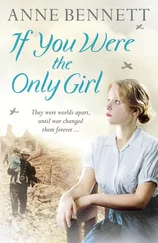William Kingston - Waihoura, the Maori Girl
Здесь есть возможность читать онлайн «William Kingston - Waihoura, the Maori Girl» — ознакомительный отрывок электронной книги совершенно бесплатно, а после прочтения отрывка купить полную версию. В некоторых случаях можно слушать аудио, скачать через торрент в формате fb2 и присутствует краткое содержание. Жанр: foreign_prose, foreign_children, на английском языке. Описание произведения, (предисловие) а так же отзывы посетителей доступны на портале библиотеки ЛибКат.
- Название:Waihoura, the Maori Girl
- Автор:
- Жанр:
- Год:неизвестен
- ISBN:нет данных
- Рейтинг книги:5 / 5. Голосов: 1
-
Избранное:Добавить в избранное
- Отзывы:
-
Ваша оценка:
- 100
- 1
- 2
- 3
- 4
- 5
Waihoura, the Maori Girl: краткое содержание, описание и аннотация
Предлагаем к чтению аннотацию, описание, краткое содержание или предисловие (зависит от того, что написал сам автор книги «Waihoura, the Maori Girl»). Если вы не нашли необходимую информацию о книге — напишите в комментариях, мы постараемся отыскать её.
Waihoura, the Maori Girl — читать онлайн ознакомительный отрывок
Ниже представлен текст книги, разбитый по страницам. Система сохранения места последней прочитанной страницы, позволяет с удобством читать онлайн бесплатно книгу «Waihoura, the Maori Girl», без необходимости каждый раз заново искать на чём Вы остановились. Поставьте закладку, и сможете в любой момент перейти на страницу, на которой закончили чтение.
Интервал:
Закладка:
W.H.G. Kingston
Waihoura, the Maori Girl
Chapter One.
The New Colony
A fine emigrant ship, her voyage happily terminated, had just entered her destined port in the northern island of New Zealand. Her anchor was dropped, the crew were aloft furling sails, and several boats were alongside ready to convey the passengers to the shore. All was bustle and excitement on board, each person anxious to secure his own property, – and people were running backwards and forwards into the cabins, to bring away any minor articles which might have been forgotten.
The water was calm and bright, the sky intensely blue. On either hand were bold picturesque headlands running out into the sea, fringed by dark rocks, while beyond the sandy beach, which bordered the bay, on a partially cleared space, were seen numerous cottages, interspersed with tents and huts, many of the latter rudely constructed of boughs. Further off arose forests of tall trees, reaching to the base, and climbing the sides of a range of high mountains, here and there broken by deep ravines, with sparkling streams rushing down them, finding their way into a broad river which flowed into the bay. Beyond the first range appeared others – range beyond range, the summits of several towering to the sky, covered with mantles of snow shining with dazzling whiteness in the bright rays of the sun. In several places the forest gave way to wide open tracts, clothed with fern or tall waving grass.
“Here we are safe at last,” exclaimed Valentine Pemberton, a young gentleman about eighteen, as he stepped from one of the first boats on to the ledge of rocks which formed the chief landing-place of the settlement.
“Father, let me help you,” he added, extending his arm towards a middle-aged fine-looking man who followed him.
“Now, Lucy, take my hand; the rocks are somewhat slippery. Harry, you can look out for yourself.” He addressed his young sister, a fair sweet-looking girl of about fifteen, and his brother, a fine active boy, who sprang on to the rock after him.
“Take care of Betsy, though,” said Lucy, not forgetful of her faithful maid, whose attachment to her young mistress had induced to leave home for a strange land.
“Paul Greening is helping her,” answered Harry.
Mr Pemberton, with his daughter and two sons, soon made their way to the more even beach, followed by Betsy and Paul Greening. Paul’s father, farmer Greening, a sturdy English yeoman, with his wife and two younger sons, James and little Tobias, as the latter was called, though as big as his brothers, were the next to land.
“My boys and I will look after your things, Mr Pemberton,” shouted the farmer. “Do you go and find lodgings for Miss Lucy and Betsy.”
“Thank you, my friend,” said Mr Pemberton, “but we have made up our mind to rough it, and purpose camping out under tents until we can get a roof of our own over our heads. Before we begin work, however, I wish to return thanks to Him who has guided and protected us during our voyage across the ocean. Will you and your family join us?”
“Aye, gladly sir,” answered farmer Greening. “We are ready enough to be angry with those who are thankless to us when we have done them a kindness, and I have often thought how ungrateful we are apt to be to Him who gives us everything we enjoy in this life.”
Mr Pemberton led the way to a sheltered spot, where they were concealed by some high rocks from the busy throng on the beach. He there, with his own children and the farmer’s family, knelt down and offered a hearty thanksgiving to the merciful God who had heretofore been their friend and guide, and a fervent prayer for protection from future dangers. Then, with cheerful hearts and strong hands, they returned to the boat, to assist in landing their goods and chattels, while Valentine and Paul went back to the ship to bring off the remainder of the luggage.
Mr Pemberton and farmer Greening, meantime, set off to get the surveying officer to point out a plot of ground on which they might encamp, the rest of the party remaining on the beach to look after their property.
While they were thus employed, a bustling little man, in a green velveteen shooting coat, approached Lucy, who, with Betsy and Mrs Greening were removing the lighter articles of their baggage. Underneath a broad-brimmed hat, which he wore far back on his bullet-like head, covered with short cropped hair, appeared a pair of round eyes, and a funny turned up nose.
“Oh, Miss Pemberton, I am shocked to see you so employed!” he exclaimed. “Let me assist you. My own things will not be brought on shore to-day, I am told, and I have no wish to go on board the ship again to look for them.”
“Thank you, Mr Nicholas Spears,” said Lucy, who had already discovered that the little man was never happy unless attending other people’s concerns, to the neglect of his own, and had no wish to encourage him in his bad habit. “My brother Harry and our friends here can do all that is necessary.”
“Oh, I beg ten thousand pardons, Miss Lucy, but I thought that I could be of use to you. It would be such a pleasure, believe me.”
Mr Nicholas Spears rolled his round eyes about, and twitched his mouth in such a curious manner when he spoke, that Lucy could scarcely refrain from laughing outright.
“If you don’t look after your own property, Mr Spears, I don’t think anybody else will,” observed Mrs Greening. “Just let me advise you to go back in the first boat, and see if any of your goods have been got out of the hold, or they may be sent on shore, and you will not know what have become of them.”
The little man seemed very unwilling to follow this wise counsel, but hearing his name called by some of the other emigrants, he hurried away to join them, and was seen running up and down the beach, carrying their boxes and parcels.
Most of the other passengers had now come on shore, and were busily employed in looking after their property, and conveying it from the beach.
Valentine and Paul had just returned with the remainder of their goods, and soon afterwards Mr Pemberton and farmer Greening returned, accompanied by four dark-skinned men, dressed in shirts and trousers, the few tattoo marks on their faces, and the shaggy state of their black hair, showing them to be of the lower order of natives. They brought also a small dray, drawn by bullocks, with which to transport the heavier articles of their luggage.
“Wherever you go, Mr Pemberton, with your leave, I and mine will go too,” said farmer Greening, as they walked along. “We have been neighbours in the old country, and you have ever been a kind friend to me, and if I can be of any use to you in choosing land, which I ought to know something about, why, you see, sir, it’s just what I shall be glad to do.”
Mr Pemberton knew the value of the farmer’s friendship and assistance too well to decline it, and thanked him heartily.
He had himself gone through many trials. After enjoying a good fortune derived from West Indian property, and living the life of a country gentleman, he found himself, at the time he was about to send his eldest son to the university, and his second boy into the navy, deprived of nearly the whole of his income. Soon afterwards he lost his wife, a far greater blow to his happiness, and believing that he could best provide for his children by emigrating to one of the colonies, with the small remainder of his fortune, he had embarked with them for New Zealand.
A cleared space on some rising ground overlooking the harbour had been selected for encamping. To this the property of the party was soon conveyed.
Читать дальшеИнтервал:
Закладка:
Похожие книги на «Waihoura, the Maori Girl»
Представляем Вашему вниманию похожие книги на «Waihoura, the Maori Girl» списком для выбора. Мы отобрали схожую по названию и смыслу литературу в надежде предоставить читателям больше вариантов отыскать новые, интересные, ещё непрочитанные произведения.
Обсуждение, отзывы о книге «Waihoura, the Maori Girl» и просто собственные мнения читателей. Оставьте ваши комментарии, напишите, что Вы думаете о произведении, его смысле или главных героях. Укажите что конкретно понравилось, а что нет, и почему Вы так считаете.












